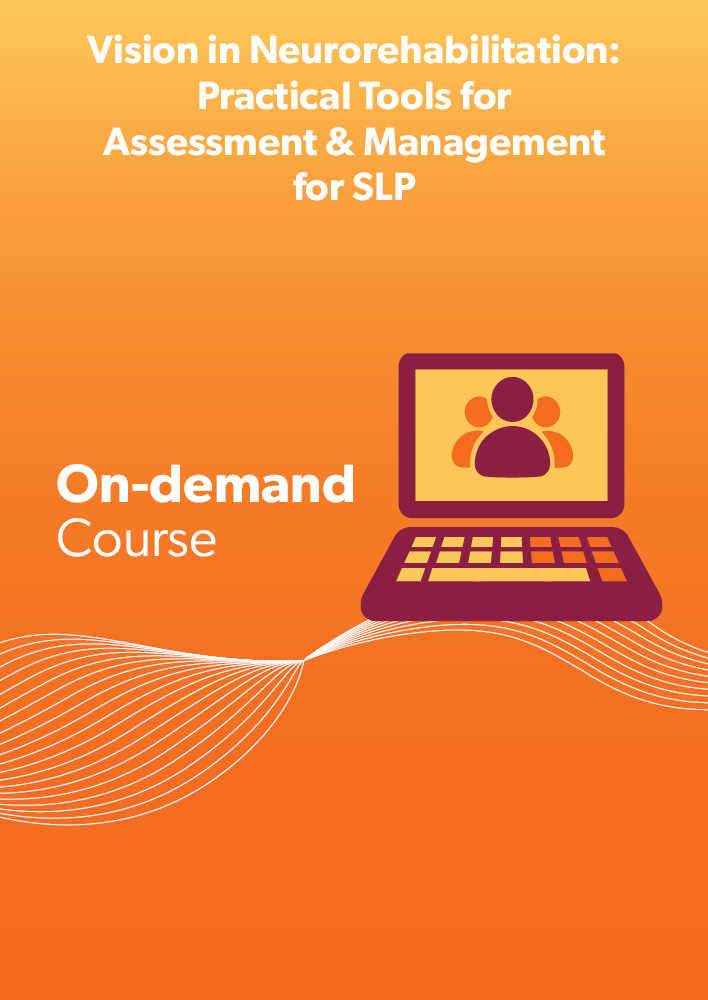
Vision in Neurorehabilitation for SLP
-
For the OT/PT Track, Click Here
- This is an on-demand course which is designed for learners to engage with content at their own convenience and pace, without the need to attend live sessions.
DESCRIPTION
This on-demand course offers a comprehensive exploration of how visual and perceptual impairments can profoundly impact an individual's daily routines and their ability to engage in designated roles. Visual impairments can limit progression across different levels of care and various types of activities (e.g. reading, mobility and self-care). This course aims to familiarize participants with prevalent visual-perceptual impairments that often constrain the performance of patients coping with visual challenges stemming from neurological injury or illness. Participants will not only revisit key anatomical features but will also delve into the fundamental components of a comprehensive vision assessment. This assessment encompasses critical aspects like visual acuity, ocular motor control, ocular alignment, visual fields and spatial neglect. These concepts are organized in a simple framework that supports effective interpretation of a visual assessment and clinical decision-making to develop of a plan of care. Instructors will provide insights into adaptable assessment approaches tailored to individuals facing cognitive or communication impairments. Case examples and videos will support the interpretation and application of novel concepts.
DATES
On-demand January 21 to March 25, 2025
Optional Office Hour One: February 18, 2025 – 4:30-5:30pm Central US Time
Optional Office Hour Two: March 13, 2025 – 5-6pm Central US Time
AUDIENCE
Speech-Language Pathologists
LEARNER OUTCOMES
Upon completion of this course, participants will be able to:
1. Identify key anatomical features of the visual system and common visual-perceptual deficits associated with neurologic diagnoses
2. Select appropriate components of a comprehensive vision assessment using the framework introduced during course (visual acuity impairments, visual field loss and spatial neglect)
3. Critically assess and interpret findings from a visual assessment in the context of case examples
4. Develop strategies to address visual deficits during assessment, structured and functional visual, written or reading tasks
5. Identify symptoms or other contributing factors that may influence performance during a visual assessment with neurologic patients
SUCCESSFUL COMPLETION
Participants will complete a total of 16 hours of material divided into Foundational Knowledge and Clinical Application. This online content will consist of videos, readings, case studies, vision screening practice, and knowledge checks. While this course is self-paced, it is recommended that the course material be completed in sequential order. There will be one optional office hour with course faculty to allow the opportunity for live interaction with the course material. All participants will be required to complete a final online evaluation by March 25th, 2025.
CONTINUING EDUCATION CREDIT
Speech-Language Pathologists
